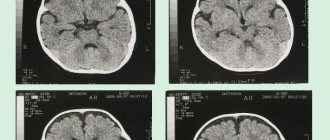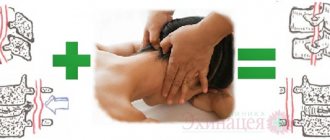Author of the article
Uradovskikh Irina Leonidovna
Member of the St. Petersburg Bar Association, lawyer with over 20 years of experience
With any pathologies of the brain and disorders of the nervous system, a person cannot be considered fully able to work. A completely reasonable question arises whether hydrocephalus and the army are compatible, because the disease is quite serious. But it all depends on the person’s condition and the preservation of brain functions. How does the law interpret this situation?
Features and classification of the disease
Hydrocephalus is considered a disease called “dropsy of the brain.” The pathology often occurs in newborns, but can also occur in adulthood and implies excessive accumulation of cerebral fluid in the subarachnoid space.
Under the influence of fluid, compression of the brain occurs, which causes neurological pathologies. The main symptoms of hydrocephalus:
- development of strabismus;
- convulsions;
- weakness in the limbs;
- loss of vision;
- gaze paresis.
If the disease progresses, severe neurological changes can lead to decreased mental abilities and death.
Hydrocephalus is divided according to the following characteristics:
- acute, chronic form depending on the course;
- closed and communicating hydrocephalus;
- compensated, decompensated course of the disease;
- external and internal hydrocephalus.
Moderate hydrocephalus in adults occurs with severe symptoms. In parallel, aggressive behavior may develop due to the development of neurasthenia with increased cranial pressure.
Features of the disease
Whether someone with hydrocephalus is accepted into the army depends on the severity of the symptoms of the disease. The disease occurs when the flow of cerebrospinal fluid deteriorates. Liquor is a special liquid that nourishes brain cells and protects them from concussion.
There are several types of the disease:
- internal;
- external;
- mixed.
In the presence of external hydrocephalus, excess fluid accumulates in the subarachnoid space. This form of the disease occurs with hypertension, head injury, and atherosclerosis.
In internal hydrocephalus, fluid accumulates in the ventricles. This type of disease develops against the background of severe pathologies of the central nervous system. One of the causes of internal hydrocephalus is cysts in the brain.
The disease is accompanied by the following symptoms:
- pain in the head;
- occurrence of dizziness;
- nausea;
- deterioration in coordination of movements;
- deterioration in vision clarity.
Hydrocephalus and military service
The diagnosis of hydrocephalus during military service is considered under Article 23. "Disease Schedule". The fitness category is awarded in accordance with the general condition of the patient. If any violations are recorded, the conscript may be released upon fulfilling his army obligations.
You can serve in the army with hydrocephalus if the diagnosis does not affect the functioning of the brain. When the pathology occurs in a compensated form, the clinical picture does not appear, so the assignment of a category largely depends on the examination at the time of passing the medical commission.
In some cases, fluid accumulation may be due to a brain cyst. If such a diagnosis is identified, surgical intervention is recommended, and the conscript receives a temporary deferment until full recovery.
After completing the necessary rehabilitation course, a conscript can theoretically serve in the army, but in practice the military registration and enlistment office does not carry out conscription if such a clinical picture develops.
What to do if they want to enlist in the army with a disease?
The young man is recommended to undergo a full medical examination. It involves undergoing magnetic resonance imaging, radiography, and computed tomography. In some cases, a lumbar puncture is performed.
If you have doubts about the legality of the actions of the military medical commission, it is recommended to go to court.
In some situations, a conscript suffering from hydrocephalus may exercise the right to perform alternative service in the army. The right to exercise it arises from:
- young people of military age whose moral principles or religious views conflict with the performance of military duty;
- representatives of indigenous peoples.
Young people can perform alternative civilian service in institutions related to the Armed Forces of the Russian Federation. In this case, the young man acts as civilian personnel. It is also possible to carry out civil service in organizations that are under the authority of federal executive authorities.
Young people who perform alternative service cannot perform the following actions:
- refuse to perform duties regulated by the employment contract;
- take part in strikes;
- combine ACS with activities in other institutions;
- engage in business (both independently and with the help of trusted persons);
- resort to termination of the employment contract on their own initiative;
- travel outside the borders of the subject of the Federation in which they carry out AGS;
- leave the workplace (during the working day regulated in the labor regulations).
Young people in alternative service are entitled to the following benefits:
- free travel to your place of work;
- regular weekends.
- provision of sick leave. The treatment of young people who are in alternative civil service is carried out by the relevant municipal health care institutions.
Syringomyelia and the army
Syringomyelia is a serious disease in which a cavity appears in the spinal cord due to enlargement of the central canal. This pathology is considered chronic and has a slow progression.
Nervous tissue cells (glia) appear in the spinal cord, which disrupt the transmission of nerve impulses to the brain. The disease can be present throughout life and in rare cases cause a bulbar disorder (changes in heart rate, breathing) leading to death.
This disease can progress quickly due to intense physical exertion, therefore, when passing a medical commission, the conscript may be assigned a category of limited fitness or given a complete exemption (category “B”, “D”).
Hydrocephalus of the brain and the army
Young people with hydrocephalus are examined under Article 23 of the Schedule of Diseases. The category of fitness for this disease depends on functional impairment. For example, in order to be exempt from the army for hydrocephalus with category “B”, clinical manifestations are required:
- impaired reflexes and decreased sensitivity;
- impairment, decreased vision;
- disturbance of gait and coordination;
- urination problems, etc.
If the symptoms manifest themselves only in the form of headaches, and other reflexes are normal, if the neurologist’s report contains the phrase “clinically healthy,” then the conscript will be drafted into the army with the fitness category “B-4.”
As practice shows, it is almost impossible to be exempt from conscription due to hydrocephalus. To obtain a military ID, numerous violations are required, which are observed only in extreme cases.
The answer to the question “whether someone with compensated hydrocephalus is accepted into the army” depends on the patient’s condition at the time of conscription. People with hydrocephalus are accepted into the army if the pathology does not impair brain function. You can also receive a summons for dispatch if the disease has entered the compensated stage and clinical symptoms do not appear.
The determination of the fitness category for hydrocephalus occurs after completion of an additional examination. The diagnosis will have to be confirmed using computed tomography, magnetic resonance imaging and radiography, and a lumbar puncture may also be prescribed.
Passing a medical examination
Confirmation of the existing diagnosis is carried out during the passage of a medical commission. The conscript submits all medical reports to the military registration and enlistment office for review. Afterwards, a referral for additional examination is issued.
After receiving the results of the study, the draft commission reviews all the data and makes an appropriate decision on assigning a category of suitability for military service. Hydrocephalus is considered a slowly progressing disease, so the issue of exemption from military obligations may have different opinions.
Reasons for development
Acquired hydrocephalus can develop due to pathological processes that result in adhesions in the vessels of the brain and destruction of arachnoid villi. The disease is provoked by the following factors:
- Infectious diseases of the brain (encephalitis, meningitis, tuberculosis);
- Sepsis;
- Previous hemorrhagic stroke;
- Head, neck injury;
- Traumatic brain injuries;
- Traumatic spinal injuries;
- Malignant neoplasms of the brain stem.
Atrophic hydrocephalus occurs due to age-related changes in cerebral vessels, metabolic disorders, diabetes mellitus, and arterial hypertension. With external hydrocephalus, zones with reduced density of brain matter are formed. They atrophy, and the vacated space is filled with cerebrospinal fluid. The cause of the development of external hydrocephalus can be constant alcohol intoxication.
List of diseases for which they are not accepted into the army
If a conscript has the following diagnoses, then he automatically receives exemption from military service:
- brain dysfunction (trauma, oncology, various disorders);
- mental disorder of an endogenous type (cyclothymia, schizophrenia, chronic delusional state);
- mental disorders due to intoxication of the body (taking psychotropic substances, physiological changes of a somatic nature);
- stress, psychosis, depression;
- infantile personality disorder (nuclear form of psychopathy, obsessive-phobic syndrome);
- mental disorders due to the use of harmful chemicals (drug addiction, substance abuse, severe alcoholism);
- mental fatigue, which has different forms of flow.
Why does dropsy of the brain occur?
In adult patients, acquired hydrocephalus is often encountered, which develops either due to any mechanical damage to the head, or as a result of the development of pathological processes. Why does cerebrospinal fluid accumulate outside the cerebral hemispheres? The explanation is simple: brain structures are disrupted, adhesions appear in the veins, arachnoid villi are destroyed, and as a result, the cerebrospinal fluid does not circulate as it should.
If we delve deeper into the question of the causes of such a disease as external dropsy of the brain, we can identify some factors:
- infectious diseases (tuberculosis, meningitis, encephalitis);
- post-stroke condition, development of sepsis, extensive hemorrhage;
- concussion, head or cervical spine injury;
- malignant tumors that develop in the stem region.
Frequent intoxication of the body leads to the appearance of external hydrocephalus. For example, alcohol abuse, which damages neurons and leads to tissue death. Those patients who suffer from metabolic disorders, diabetes mellitus, multiple sclerosis, encephalopathy, and atherosclerosis are also at risk. Another reason that deserves due attention is irreversible age-related changes that cause aging of blood vessels and brain tissue.
Main services of Dr. Zavalishin’s clinic:
- consultation with a neurosurgeon
- treatment of spinal hernia
- brain surgery
- spine surgery
Diagnostics
When a patient enters the neurology clinic, the doctor conducts an examination, checks motor reflexes, muscle and joint reactions. To clarify the diagnosis, additional examinations are carried out:
- Ultrasound examination of the head and neck for a preliminary assessment of the condition of the vascular bed;
- Computed tomography, which helps to establish the degree of damage to brain tissue, assess the degree of expansion of the subarachnoid fissures, determine the presence of neoplasms in the skull that impede the outflow of cerebrospinal fluid;
- Magnetic resonance imaging, which allows you to see changes in brain tissue with maximum accuracy;
- X-ray of the skull to determine changes characteristic of liquor hypertension and space-occupying formations;
- An ophthalmological examination to determine the presence of congestion, swelling of the optic nerve, and atrophy of eye tissue.
Patients undergo a lumbar puncture, which is used to determine the level of cerebrospinal fluid pressure. Improvement in the condition of a patient with hydrocephalus after removal of 40 ml of cerebrospinal fluid indicates a good prognosis after surgery.
Make an appointment











